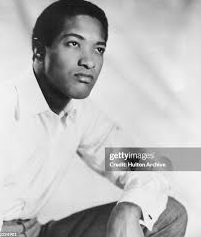
The iconic soul singer’s mysterious death raised questions, but his music and civil rights impact resonate beyond the shadows.
Sam Cooke, the legendary soul voice of the Sixties, met an untimely and controversial death at the age of 33, when he was fatally shot by the manager of a modest Los Angeles motel. While the official narrative cited self-defence, conspiracy theories have long swirled, attributing his death to possible foul play involving mob interests, civil rights antagonists, or professional betrayal.
On 10 December 1964, Cooke spent the evening at Martoni’s restaurant, flaunting his recent earnings. Later, he was reported to have driven to the Hacienda Motel with a young woman, Elisa Boyer. Accused of attempting to assault her, Cooke was ultimately shot by the motel’s manager, Bertha Franklin. The incident was quickly deemed a “justifiable homicide,” but his family and admirers questioned this version of events, painting a very different picture of the man they knew—gentle, influential, and deeply committed to civil rights.
Despite the murky details surrounding his death, Cooke’s legacy as a trailblazer in music and activism is indelible. His timeless anthem, A Change Is Gonna Come, released just days after his death, became a rallying cry for the civil rights movement, capturing the hope and struggle of Black Americans. Known for hits like Twistin’ the Night Away and Cupid, Cooke seamlessly blended chart success with political awareness, paving the way for future artists like Otis Redding, James Brown, and Stevie Wonder.
In life, Cooke broke barriers. He was the first major Black artist to own a record label, SAR Records, and defied societal norms by refusing to play for segregated audiences. His courage extended beyond music; he stood against racism in everyday encounters, aligning himself with figures like Muhammad Ali and Malcolm X. Tragically, his life was cut short before he could realise his full potential.
Six decades later, Cooke’s music continues to inspire, reminding the world of the enduring power of art in the fight for justice. His legacy speaks not only of the soulful sound he perfected but also of a man who dared to dream of a united and equal society. As his voice echoes through generations, it serves as a beacon for change yet to come.









